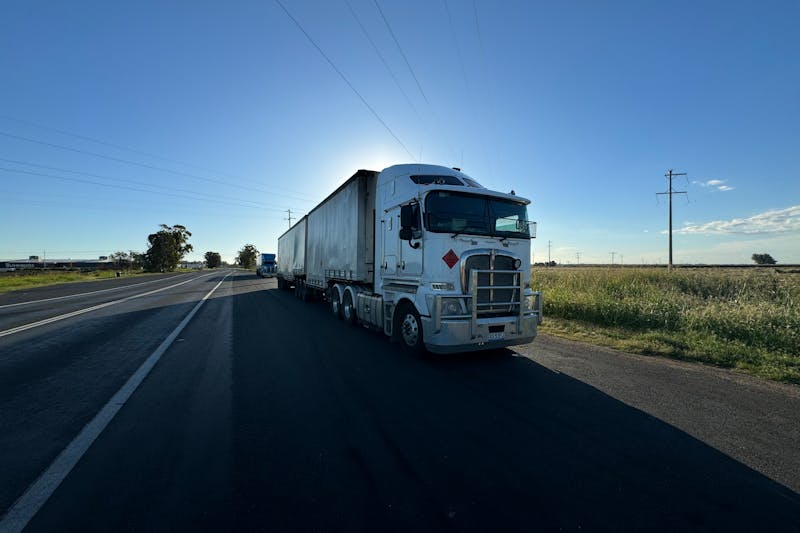Being involved in a collision with an 18-wheeler or commercial truck in Nashville can be devastating. These massive vehicles—often weighing up to 80,000 pounds—can cause catastrophic injuries, substantial property damage, and even fatalities.
If you’ve been hit by a semi-truck, understanding your potential compensation is an important part of planning your recovery.
Table of Contents
Truck Accident Compensation Differs from Car Accidents
Truck accident cases typically result in higher settlements and verdicts than standard car accidents for several compelling reasons:
- More severe injuries – The size disparity between commercial trucks and passenger vehicles means injuries are often catastrophic
- Higher insurance policy limits – Commercial trucks carry much larger insurance policies than personal vehicles
- Multiple liable parties – Trucking cases often involve several responsible parties, expanding potential compensation sources
- Federal regulations – Additional liability may arise from violations of strict federal trucking regulations
Key Factors Affecting Your Potential Compensation
While every truck accident case in Nashville is unique, several factors significantly influence potential compensation:
1. Severity of Injuries
The extent of your injuries remains the most critical factor in determining compensation. Truck accidents frequently cause:
- Traumatic brain injuries
- Spinal cord damage and paralysis
- Multiple fractures
- Internal organ damage
- Severe burns
- Amputations
- Fatal injuries
More severe injuries typically result in higher medical expenses, longer recovery periods, more significant pain and suffering, and potentially permanent disabilities—all factors that increase compensation amounts.
2. Available Insurance Coverage
Commercial trucks operating in Tennessee must carry substantially higher insurance coverage than passenger vehicles:
- Interstate trucking companies must maintain at least $750,000 in liability coverage according to federal regulations
- Hazardous materials carriers may be required to carry $1-5 million in coverage depending on cargo type
- Many large trucking companies voluntarily carry policies worth $1 million or more
These higher policy limits create the potential for more substantial compensation compared to typical car accident cases.
3. Clear Liability
Tennessee follows a modified comparative fault system established in McIntyre v. Balentine. Under this rule:
- Your compensation is reduced by your percentage of fault
- If you’re found 50% or more at fault, you cannot recover damages
Establishing clear liability against the truck driver or trucking company is crucial for maximizing your recovery. Common causes of truck accidents where liability may be clearer include:
- Hours-of-service violations
- Impaired driving
- Inadequate training
- Poor truck maintenance
- Unsecured cargo
- Distracted driving
4. Multiple Liable Parties
Unlike typical car accidents, truck accidents often involve multiple liable parties:
- The truck driver
- The trucking company
- The truck manufacturer
- The maintenance provider
- The cargo loading company
- Parts manufacturers
This multiplicity of potentially responsible parties can significantly increase available compensation sources.
Types of Damages Available in Nashville Truck Accident Cases
If you’ve been hit by an 18-wheeler in Nashville, you may be entitled to various types of compensation:
Economic Damages
These are quantifiable financial losses, including:
- Medical expenses – Current and future costs for emergency care, hospitalization, surgeries, rehabilitation, medications, medical equipment, and ongoing treatment
- Lost income – Wages lost while recovering and diminished future earning capacity
- Property damage – Vehicle replacement or repair costs
- Home modifications – Adaptations needed to accommodate disabilities
- In-home care costs – Professional assistance required during recovery or permanently
Non-Economic Damages
These compensate for subjective, non-monetary losses:
- Pain and suffering – Physical pain and discomfort
- Emotional distress – Psychological impact including anxiety, depression, PTSD
- Loss of enjoyment of life – Inability to participate in previously enjoyed activities
- Loss of consortium – Impact on marital relationships
- Disfigurement and scarring – Compensation for permanent physical changes
In cases involving particularly egregious conduct, punitive damages may also be available, though these are less common.
Potential Compensation Ranges for Nashville Truck Accidents
While every case is unique and past results don’t guarantee future outcomes, truck accident cases typically fall into these general ranges:
Moderate Injury Cases
Cases involving significant but non-permanent injuries (such as broken bones, soft tissue damage, or concussions) that eventually heal might settle for $100,000 to $500,000, depending on recovery time and impact on daily activities.
Serious Injury Cases
Cases involving major injuries requiring surgery, extended rehabilitation, or resulting in partial disability (such as herniated discs requiring fusion surgery) might settle for $500,000 to $1 million.
Catastrophic Injury Cases
Cases involving life-changing injuries such as paralysis, traumatic brain injuries, amputations, or severe burns often result in settlements or verdicts ranging from $1 million to several million dollars, reflecting lifetime care needs and permanent disability.
Wrongful Death Cases
When a truck accident results in death, compensation for surviving family members might range from $1 million to $10+ million, depending on circumstances, the victim’s age, earning capacity, and dependents.
Tennessee-Specific Considerations
When evaluating potential compensation for a Nashville truck accident, several Tennessee-specific factors must be considered:
1. Statute of Limitations
Tennessee has a one-year statute of limitations for personal injury claims (Tennessee Code § 28-3-104), one of the shortest in the nation. This means prompt legal action is essential.
2. Damage Caps
Tennessee law (Tennessee Code § 29-39-102) caps non-economic damages at $750,000 in most personal injury cases, or $1 million for “catastrophic” injuries. However, these caps are being challenged in courts and may not always apply.
3. Local Court Tendencies
Davidson County courts and juries have their own tendencies that can affect case values. Local Nashville attorneys familiar with these tendencies can better evaluate your specific case.
Steps to Maximize Your Compensation
To maximize potential compensation after being hit by an 18-wheeler in Nashville:
- Seek immediate medical attention – Document all injuries thoroughly
- Preserve evidence – Take photos, gather witness information, and save all accident-related items
- Avoid giving statements to trucking company representatives or insurers
- Track all expenses related to your accident and injuries
- Follow all medical advice and attend all appointments
- Consult with an experienced truck accident attorney familiar with Nashville courts
Hiring a Nashville Truck Accident Attorney
Truck accident cases involve complex federal regulations, multiple parties, commercial insurance policies, and often corporate legal teams. An experienced Nashville truck accident attorney can:
- Identify all liable parties and insurance policies
- Secure and analyze critical evidence, including electronic logging devices, maintenance records, and driver qualification files
- Work with accident reconstruction experts, medical professionals, and life care planners
- Accurately calculate current and future damages
- Negotiate effectively with powerful insurance companies
- Prepare your case for trial if necessary
Contact The Higgins Firm for a Free Consultation
If you’ve been hit by an 18-wheeler in Nashville, the experienced truck accident attorneys at The Higgins Firm can evaluate your specific case and help you understand your potential compensation. Our dedicated legal team has the knowledge, resources, and track record to effectively handle truck accident cases throughout Tennessee.
Contact us today for a free, no-obligation consultation to discuss your rights and options. Remember, you don’t pay unless we win your case.




![Average Settlement for Car Accidents in Nashville [What to Expect in 2025]](https://www.thehigginsfirm.com/wp-content/uploads/2025/03/car-accident-settlement.jpg)

